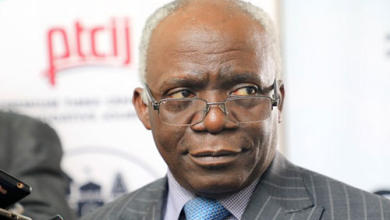Tinubu’s New Tax Laws to Take Effect in 2026 as FIRS Becomes Nigeria Revenue Service
Tinubu’s tax reforms will take effect January 2026, giving Nigerians time to adjust policies.
The renamed Nigeria Revenue Service plans consultations and education ahead of the nationwide implementation rollout.
President Bola Tinubu’s administration has announced that the recently signed tax reform laws will officially take effect on January 1, 2026. This timeline provides a transition period intended to ensure effective implementation and nationwide awareness, according to the Federal Inland Revenue Service (FIRS), which has now been renamed the Nigeria Revenue Service (NRS).
The Chairman of the rebranded tax authority, Dr. Zacch Adedeji, announced while briefing journalists at the State House shortly after President Tinubu signed four significant fiscal laws. He noted that the one-year gap before the laws are enforced would allow stakeholders sufficient time to prepare and adapt to the changes.
“In the last two hours, we moved from being the Federal Inland Revenue Service to the Nigeria Revenue Service. This rebranding is not merely cosmetic but signifies an expanded role and a renewed focus on efficiency,” Adedeji stated.
The new Nigeria Revenue Service (Establishment) Act repeals the former FIRS Act, introducing a legal framework that enhances the agency’s autonomy, promotes transparency, and strengthens accountability mechanisms. Under the new law, the NRS will not only be responsible for tax revenue but also oversee the collection of non-tax revenue streams. This broadened scope will be supported by performance-based systems and clearly defined efficiency benchmarks.
To ensure the new tax laws are properly rolled out, the federal government has approved a six-month sensitization and consultation period. This initiative will involve a broad coalition of stakeholders from the private sector, civil society, international organizations, and professional bodies.
Mr. Taiwo Oyedele, Chairman of the Presidential Committee on Tax Reforms, stressed the importance of practical application over mere legislative drafting. “The journey is just beginning. Writing the law is one thing; implementing it effectively is what truly matters,” he said.
Oyedele explained that President Tinubu is determined to make the tax reforms inclusive and transparent, with all relevant parties involved in both planning and execution. He emphasized that without stakeholder participation and shared ownership, even the most progressive policies risk failure.
The four tax reform bills recently signed into law are part of Tinubu’s broader fiscal strategy to modernise Nigeria’s revenue collection systems, reduce dependency on oil income, and foster a more accountable public finance framework. These changes align with global best practices, offering Nigeria an opportunity to boost domestic revenue and improve service delivery.
As the 2026 rollout approaches, the Nigeria Revenue Service is expected to intensify its public engagement efforts, focusing on compliance, education, and digital transformation.



